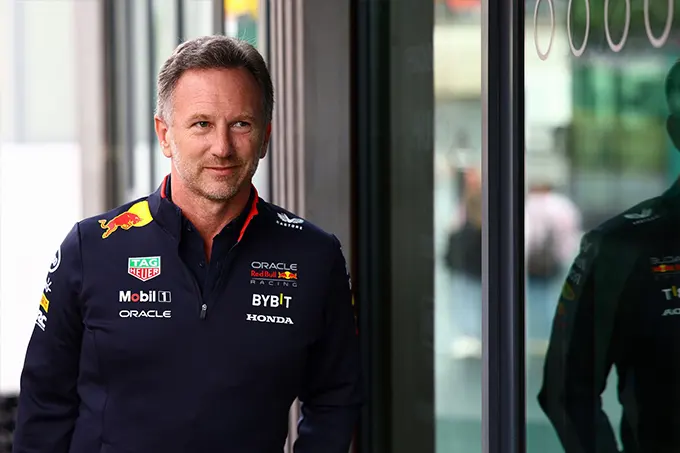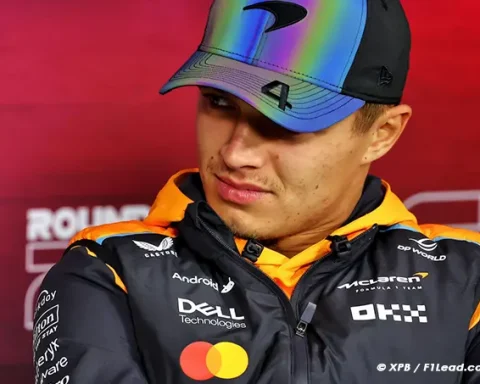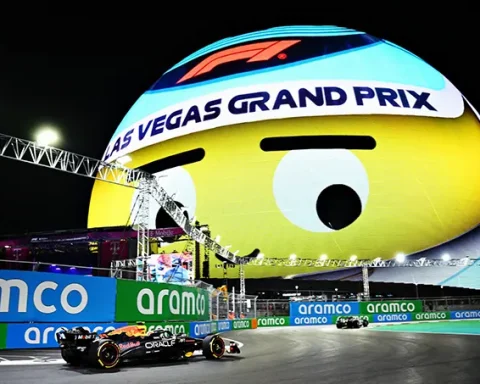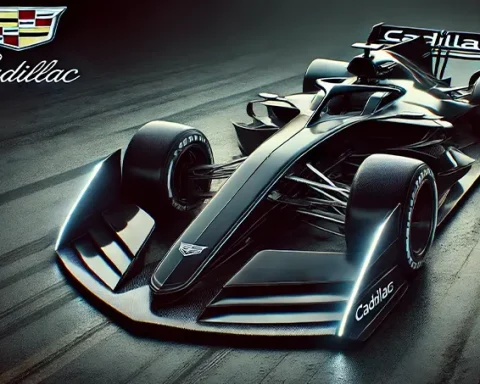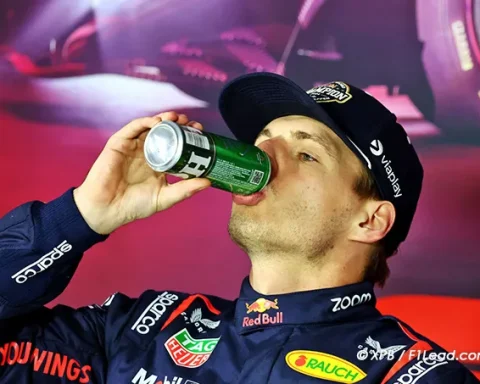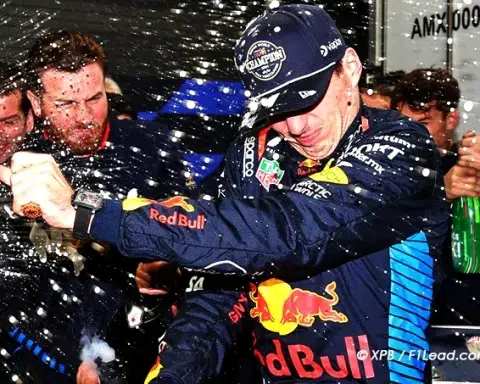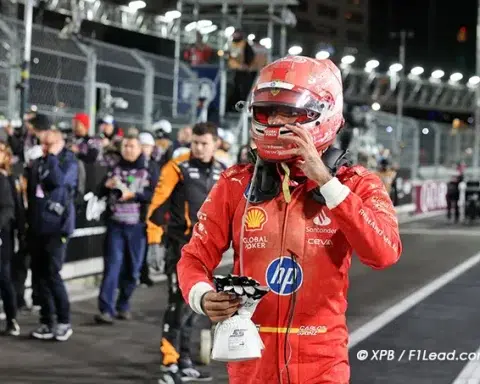Horner expects tighter 2026 F1 rules to level the playing field.
For 2026, Red Bull faces perhaps the most significant challenge in its history: becoming its own engine manufacturer. In partnership with Ford on the electric component, Red Bull Powertrains continues its efforts to develop its own power unit in line with the new engine regulations. The project led in Milton Keynes is as exhilarating as it is daunting: the success or failure of this engine project will determine the competitiveness of Red Bull (and RB F1) for 2026 and likely beyond.
Christian Horner, the chief of Red Bull Racing, acknowledges the enormity of the task and the pressure that accompanies it. “This represents the largest investment Red Bull has ever made in motorsport.” “With Ford, we must succeed. We cannot afford for this project to fail. I believe that, from a strategic standpoint, where we stand as a group and as a team with this alliance, this new engine regulation is the perfect moment to take everything into our own hands—with all the benefits that come from everything being located on the same campus, that of Milton Keynes.”
Following the Christian Horner affair, there were some doubts about Ford’s real involvement in the project—or at least, the Red Bull-Ford alliance seemed somewhat weakened. How, then, is the day-to-day collaboration between Red Bull Powertrains and Ford going? Can Christian Horner assure that all is well in the best of all possible worlds?
“It’s very dynamic, with certain demands at certain times. During the construction phase, when we lacked the necessary resources and capabilities, it was: ‘OK, we need simulation engineers, we need electrical vehicle specialist engineers.’ “That’s where these people [from Ford], with their motorsport activities and the investments they’ve made in electric vehicles… it made sense for us to start there and tell them: ‘Alright, share with us your experience. Are we studying the right technologies?’ So, there was significant collaboration on that front.”
“What is fantastic about this partnership is that the leaders at Ford have said: ‘Listen, you do F1 every day. It’s your livelihood. We’re not going to impose our methodology on you. Tell us how we can assist. Where can we be of help?’”
“It was truly an open book: how can we help you achieve the 2026 goal in the most competitive way possible?”
“We really felt it was a partnership where nothing is imposed on the engineers, which can sometimes happen in these types of relationships, and something we were wary of encountering in the other relationship we were considering [with Porsche, editor’s note].”
“It’s more about collaboration: ‘Okay, here are all the resources from Ford Motor Company. What can we do to assist you on this journey?’ And the requests vary from week to week, month to month.”
Will there be less performance disparity than anticipated in 2026?
However, Red Bull also has bitter memories of the last engine regulation change. In 2014, Renault’s V6 was off the mark, and Red Bull’s competitiveness suffered for years.
Does Christian Horner fear that once again, in 2026, Red Bull will be trailing? And that another team might dominate, perhaps Mercedes F1?
“I do not believe we will witness a repeat of 2014, as the regulations are so prescriptive in terms of parameters and maximum ERS system performance.”
“I think combustion will still play a key role. But again, regarding the efficiency level of these engines… you’re dealing with very fine percentages. The fuel is probably the biggest differentiator in performance at the moment.”
“Because everything else is so narrowly defined… it’s hard to see how one could gain or lose a significant advantage. In theory, if everyone maximizes their performance, the performance gap should not be very significant.”
“It’s an exhilarating chapter. Of course, there are associated risks. To undertake and do what we have done is madness in terms of investment, rallying people together, producing our own engine. We could not have done it without a like-minded partner.”
“As Dietrich Mateschitz always told us, no risk, no fun. When you weigh the risk against the reward, there are substantial risks. Ultimately, it would have been very easy to stay with Honda once they had changed their minds, but this allows us to take our destiny into our own hands and secure the long-term future of the team.”
Ford has full confidence in Red Bull Powertrains
On his part, Mark Rushbrook, Ford’s director of motorsports, has confirmed that the agreement between Ford and Red Bull Powertrains is highly effective. The American engine manufacturer’s contribution has not been limited to the electric part.
“From the initial discussions, it was more about identifying where contributions could be made and what the benefit would be. We are very dynamic, but we respond as needed to have the right resources.”
“Even though we initially focused on electrification, we have also provided assistance with the turbo and for the test bench.”
“These weren’t on the initial list, but they were needed by the team, and we said we had resources and facilities that could help, and it quickly became part of the program. There are many examples of this kind.”
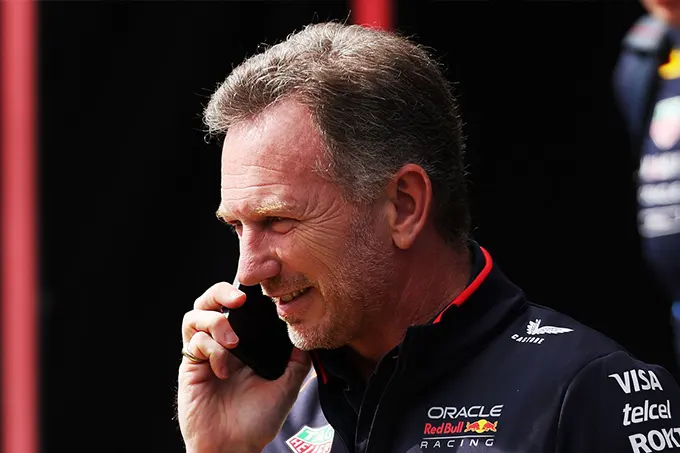
- You may also like>Hülkenberg highlights Abiteboul’s impact and Ricciardo’s role in his Renault F1 departure
- Also make sure you follow us on social media>Facebook and>Twitter
2026 F1 Rules to Prevent Engine Manufacturer Supremacy 2026 F1 Rules to Prevent Engine Manufacturer Supremacy
